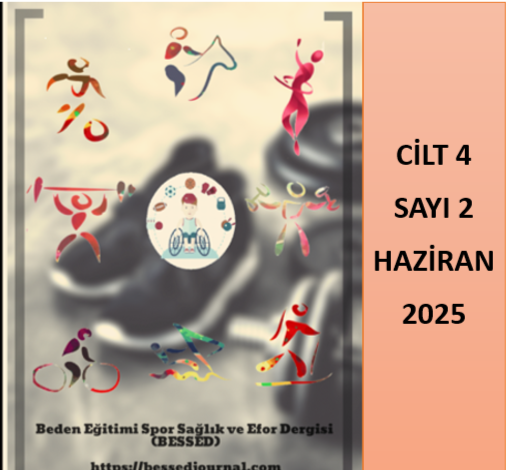Beden Eğitimi Öğretmenleri ile Farklı Branş Öğretmenlerin, Rekreasyon Fayda Düzeylerinin Bazı Değişkenlere Göre İncelenmesi
Author :
Abstract
|
Bu araştırma, beden eğitimi öğretmenleri ile farklı branşlardaki öğretmenlerin rekreasyon fayda düzeylerini bazı demografik değişkenler açısından incelemek amacıyla gerçekleştirilmiştir. Araştırmanın çalışma grubunu İstanbul ilindeki Milli Eğitim Bakanlığına bağlı devlet ve özel liselerin Beden Eğitimi ile diğer branşlar olmak üzere toplam 425 öğretmen oluşturmaktadır. Çalışma verileri kişisel bilgi formu ve rekreasyon fayda Ölçeği (RFÖ) aracılığıyla elde edilmiştir. Araştırma da ilişkisel tarama modeli kullanılmıştır. Elde edilen veriler SPSS 25.0 paket programı kullanılarak analiz edilmiş ve anlamlılık derecesi 0,05 olarak belirlenmiştir. Çalışma sonucunda elde edilen bulgulara göre kadın öğretmen adaylarının mesleğe karşı daha olumlu ve saygılı bir tutum geliştirdiklerini belirlenmiştir. Ayrıca ortalama puanlara bakıldığında, en yüksek saygı düzeyinin 25 yaş ve üzeri katılımcılarda olduğu sonucuna ulaşılmıştır. Bir diğer sonuç olarak Mesleğe Yönelik Saygı alt boyutunda, çalışan öğrencilerin ortalama puanları çalışmayan öğrencilere göre anlamlı düzeyde daha yüksek olduğu sonucuna ulaşılmıştır. |
Keywords
Abstract
This study was conducted to examine the recreation benefit levels of physical education teachers and teachers of different branches in terms of some demographic variables. The study group of the research consists of a total of 425 teachers of Physical Education and other branches of public and private high schools affiliated to the Ministry of National Education in Istanbul. The study data were obtained through personal information form and recreation utility scale (RFS). Relational survey model was used in the research. The data obtained were analysed using SPSS 25.0 package programme and the significance level was determined as 0.05. According to the findings of the study, it was determined that female pre-service teachers developed a more positive and respectful attitude towards the profession. In addition, when the mean scores were analysed, it was concluded that the highest level of respect was found in participants aged 25 years and above. As another result, it was concluded that the average scores of the working students were significantly higher than the non-working students in the Respect for the Profession sub-dimension.
